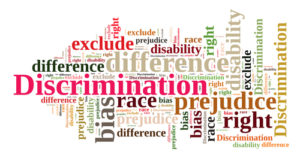ADA AA Understanding the Disability Discrimination Protection Law
ADA History and its Transformation to ADA AA
The ADA Amendments Act of 2008 or Americans with Disabilities Act Amendments Act, abbreviated as ADAAA, was enforced on January 1 in 2009.
- This Act of Congress modified the Americans with Disabilities Act (ADA) of 1990 and other discrimination laws pertaining to disability at the US Federal level. Since it amended the ADA, it was named the ADA Amendments Act or ADAAA.
- The revised ADA bill was passed in 2008 on September 17 and was signed to form a law by the then US President George W. Bush on September 25, the same year.
- The Act necessitates that federal courts construing ADA and any other Federal disability discrimination laws concentrate on whether the individual seeking protection from the law has an impairment fitting the lawful definition of the “disability”.
Who Does ADAAA Protect?
While ADAAA does not mention learning disabilities, in particular, it protects the rights of a person with one or more of the following:
- An individual with a physical or intellectual impairment that limits at least one major life activity substantially.
- If an individual has a record of any pertinent impairment.
- If an individual is considered having an impairment of such kind.
 Under this Act, learning, thinking, concentrating and reading are some of the activities listed under the category of major life activities.
Under this Act, learning, thinking, concentrating and reading are some of the activities listed under the category of major life activities.
- The ADAAA necessitates a wider interpretation of the term “disability” by schools, companies and testing agencies than that in the original law.
- It aims at ensuring greater ease for persons with Disability at qualifying for admissions to schools, employment or tests.
Reasonable Accommodations Under ADAAA
- Accommodations at School The Act mandates provision of reasonable accommodations to those disabled students, who while meeting the necessary requirements, may not qualify for services under IDEA. This means that a school needs to offer such students all accommodations which would aid him/her in learning most effectively.
- Accommodations at Workplace The Act states that an employer must not inquire about LD, with a single exception. If the employer has such a requirement in line with a federal agreement, an applicant may be asked for “self-identification”. Any information pertaining to disabilities needs to be maintained separately and confidentially. ADAAA necessitates that employee must disclose information about the requirement of accommodation to the employer. After the disclosure, an employer is exempted from making an accommodation which could be termed as an “undue hardship”.
Essential Function of Job
ADAAA bans any kind of discrimination against a qualified person with disabilities. Such an individual is either a job aspirant or an employee possessing all legitimate expertise, education, and experience required for a particular job. He/she must be able to carry out essential functions of that particular position with the aid of or with no reasonable accommodation.
If a disabled individual or an entity feels that they have been discriminated against, they must approach board certified attorneys in employment law to determine the validity of the case and to get a clear insight about the damages that may be recovered.



